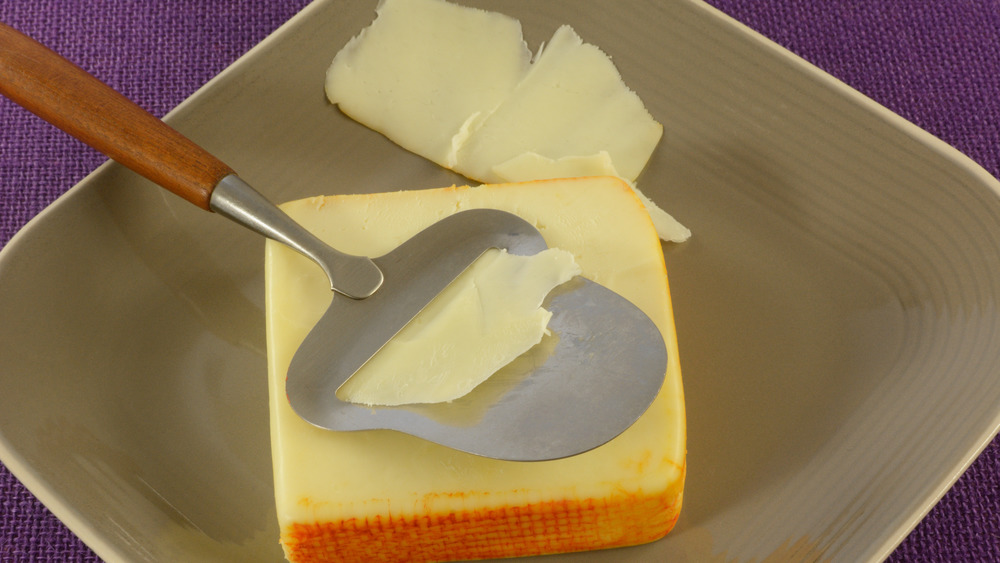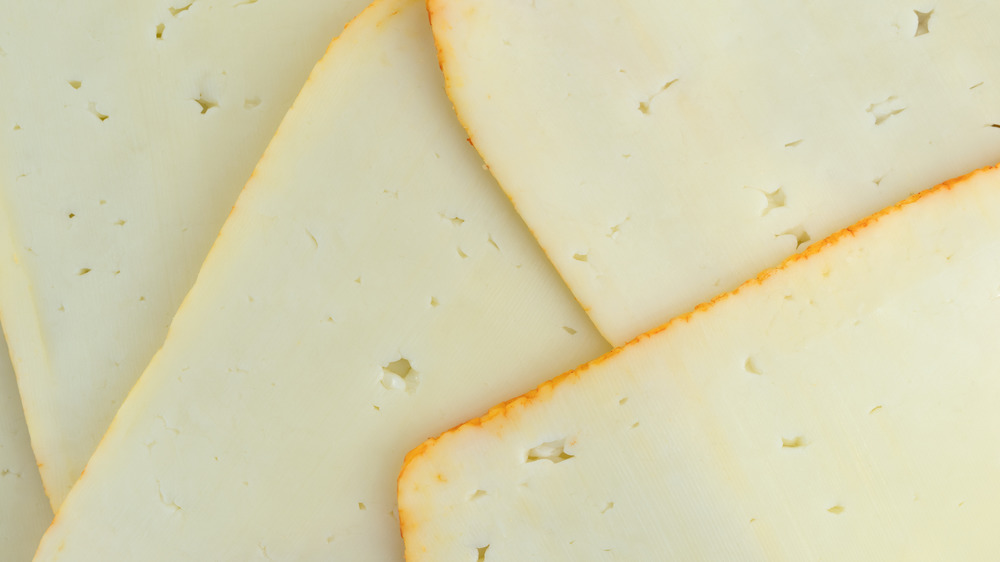This Is Why You Should Eat Muenster Cheese
Cheese is a gift from the dairy gods — unless you are lactose-intolerant. If you have that condition, cheese becomes just like any member of the milk and dairy family: delicious but another temptation to be avoided because of all the grief it can inevitably cause. Symptoms can include an upset stomach, nausea, cramps, and other things that might come with it (via Healthline).
But it turns out that while most cheeses come from milk, not all cheeses trigger the same levels of heart — and stomach — ache because they don't have the same levels of lactose, or milk sugar. And that has to do with the age of the cheese that you happen to enjoy.
Real Simple says the rule of thumb involving cheese and lactose levels is simple: the fresher the cheese, the more lactose it has. So if you have lactose intolerance, you're better off leaving the creamier cheeses like Brie, Camembert, cottage cheese, ricotta, and mozzarella on the cheeseboard and going for the harder cheeses instead.
Why Muenster cheese works for those who are lactose intolerant
Being lactose intolerant doesn't mean you need to avoid all dairy at all costs, but instead, you need to think twice about the dairy you consume. Evidence suggests that taking in as much as 12 to 15 grams of lactose can actually be consumed by many lactose-intolerant adults with few of the side effects that normally come with it (via National Library of Medicine). That means if you're smart about the kind of cheese you pick, you should be able to enjoy a serving or two without any of the punishment. And that's where Muenster cheese comes in.
Muenster cheese is all-American, made from pasteurized whole cow's milk, and has a smooth, pale yellow color. Some Muensters can taste mild — similar to American cheese — while others will have a stronger, sharper flavor; it can even develop a strong aroma if it is properly aged (via Cheese). Because it melts beautifully, Muenster is a star on its own in macaroni and cheese or in a grilled cheese sandwich; it can also play a supporting role in burgers and pizza. Best of all, it has a range of 0 to 1.1 percent on a lactose scale — against, say, Provolone (0 to 2.1 lactose) or Parmesan (0 to 3.2 lactose). Unless it's eaten in large amounts, Muenster isn't likely to give a lactose-intolerant body a reason to act up (via Thrillist).

